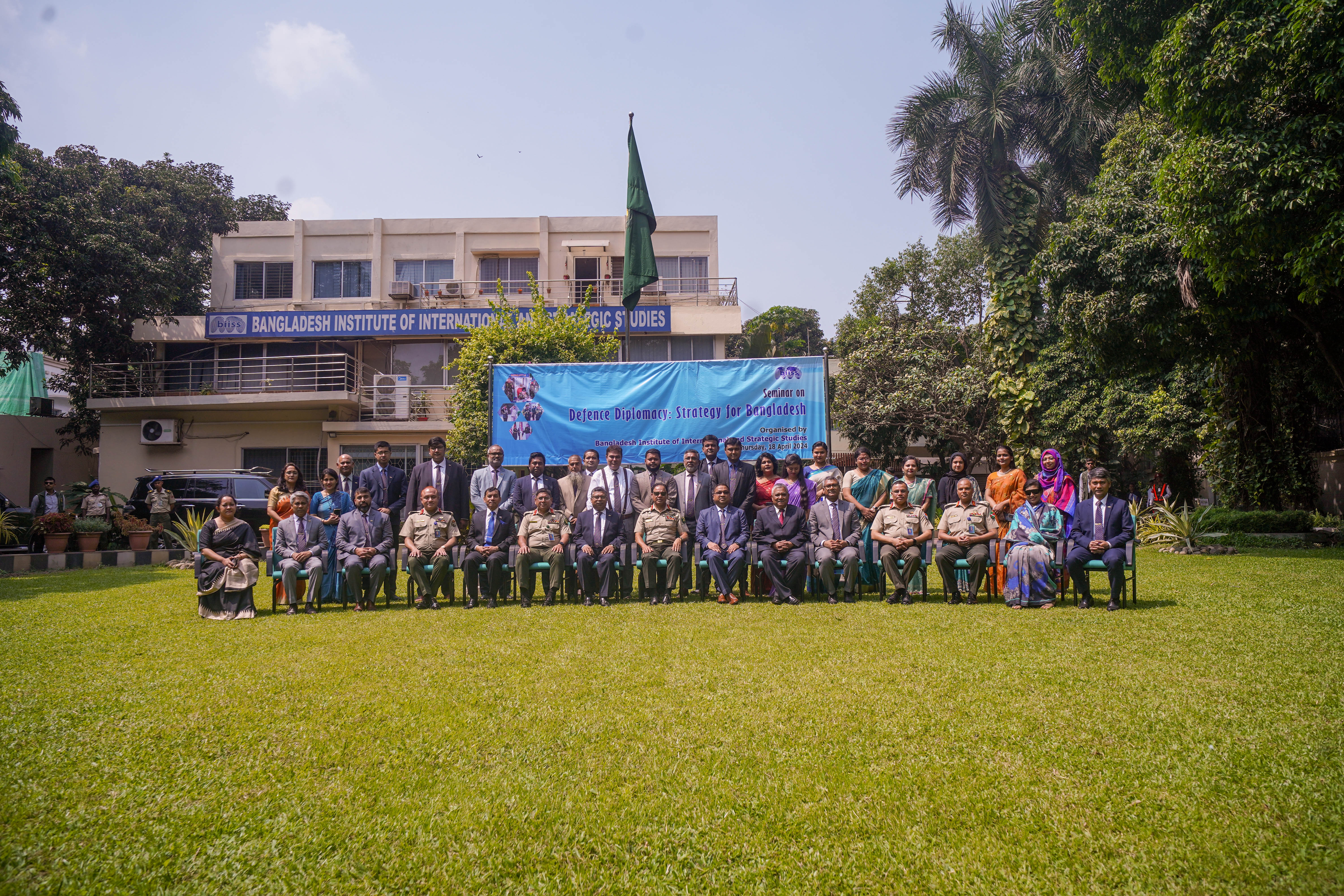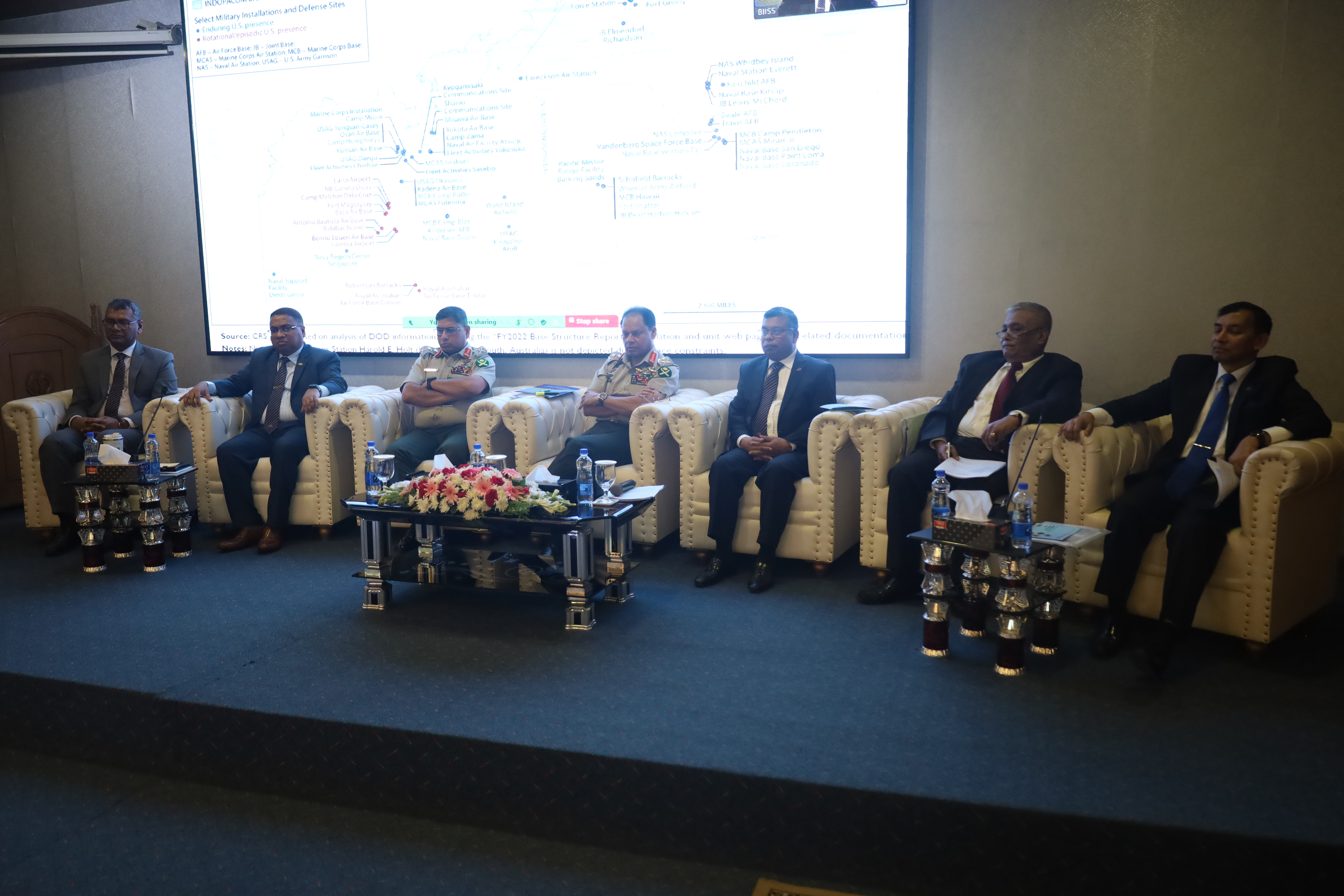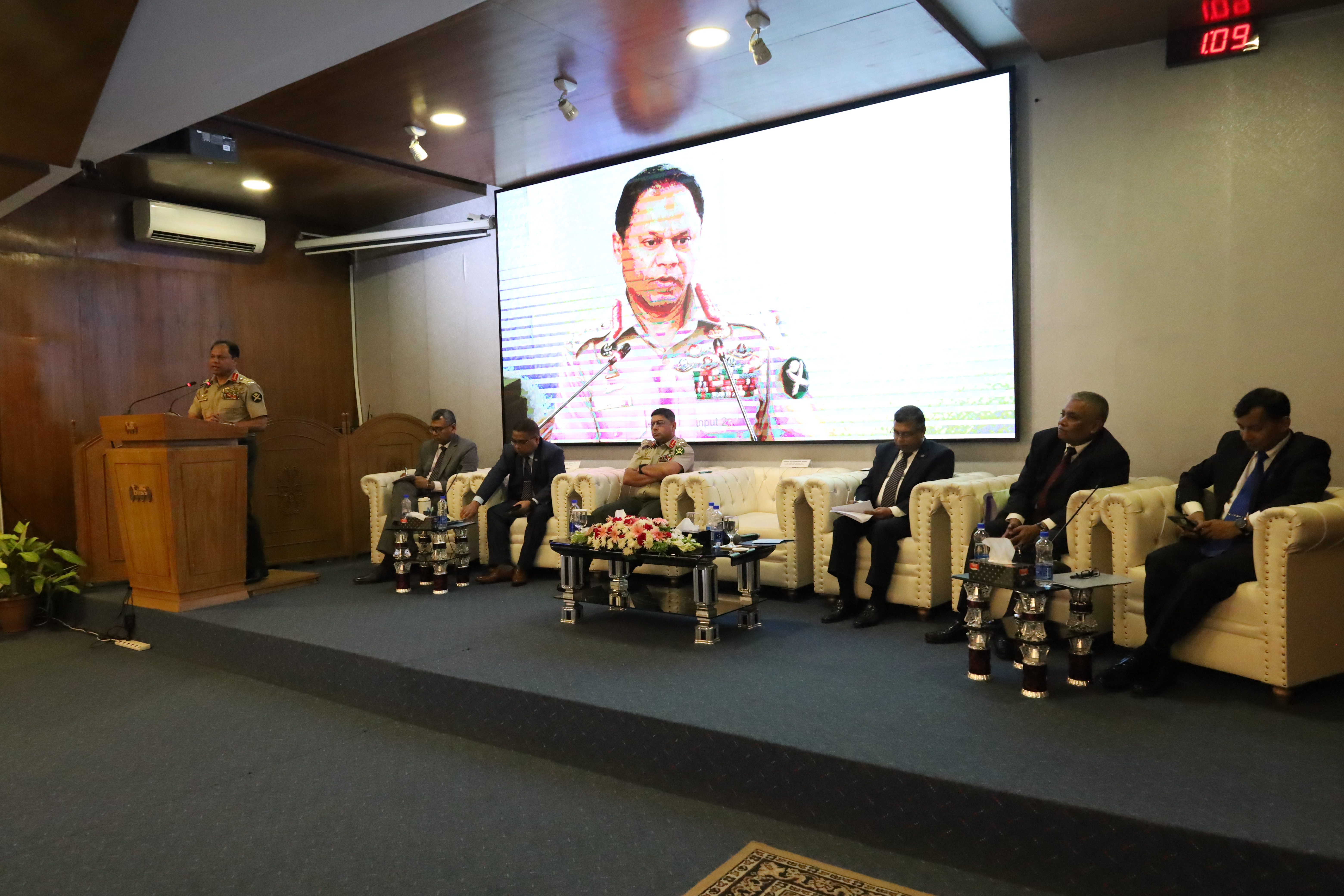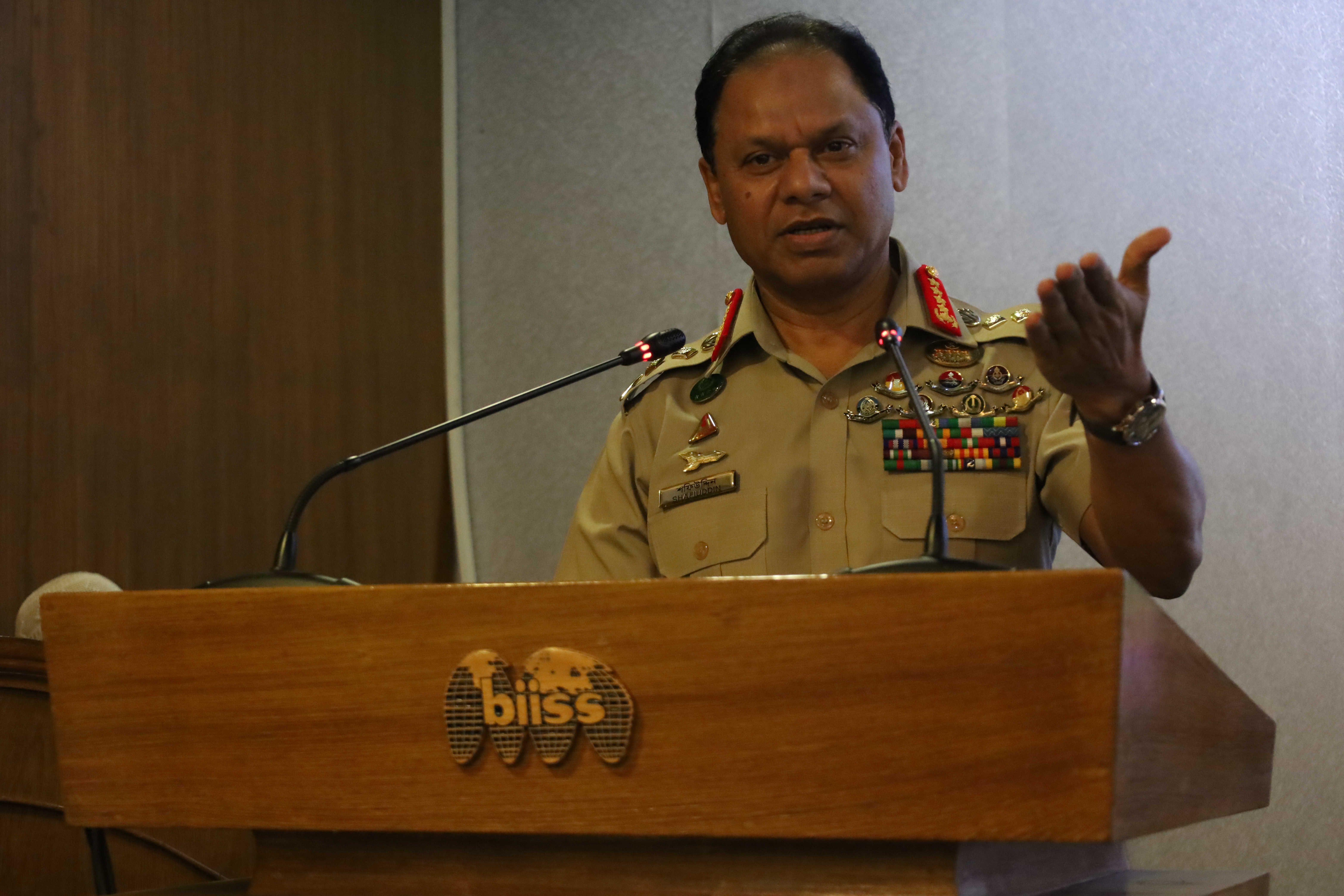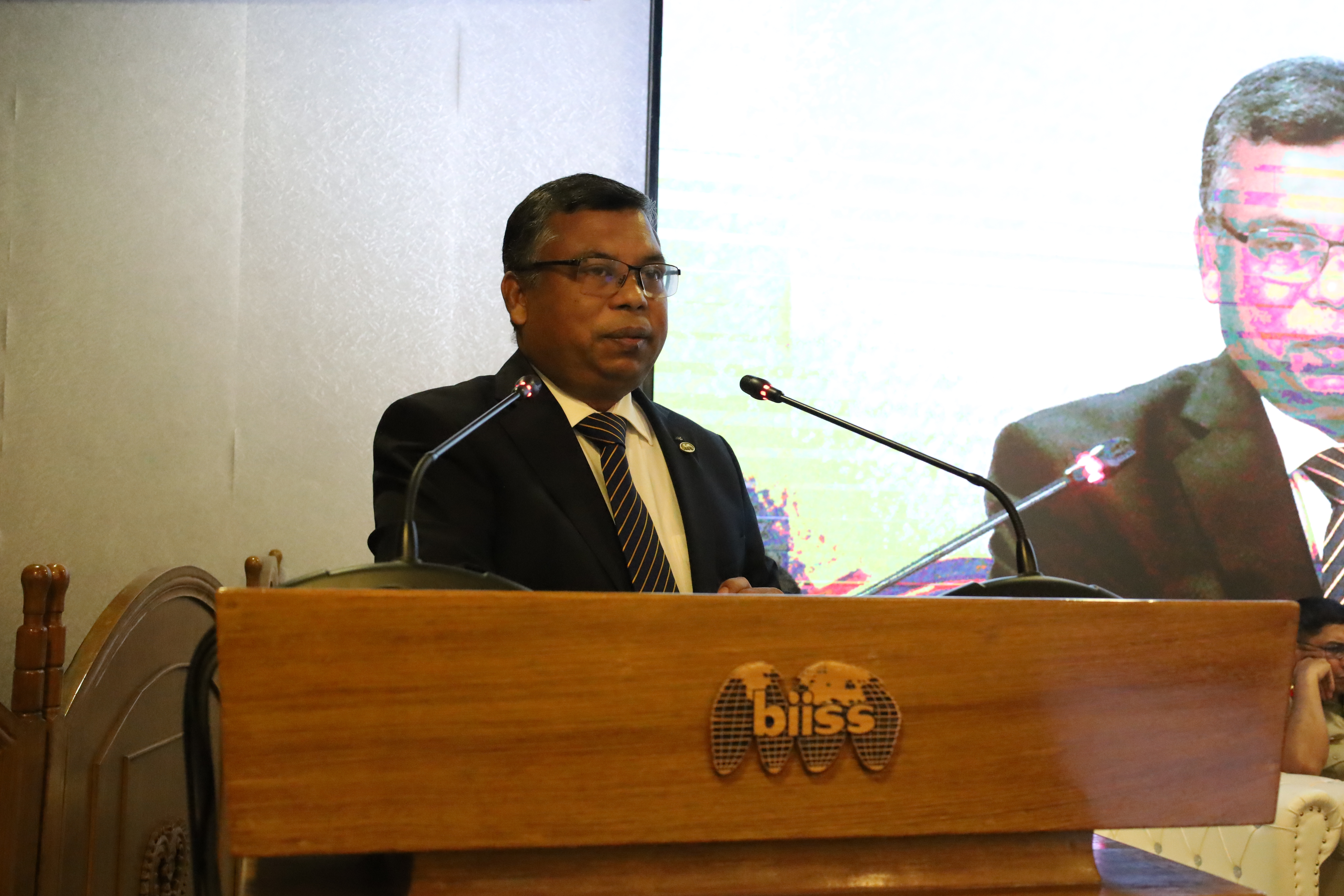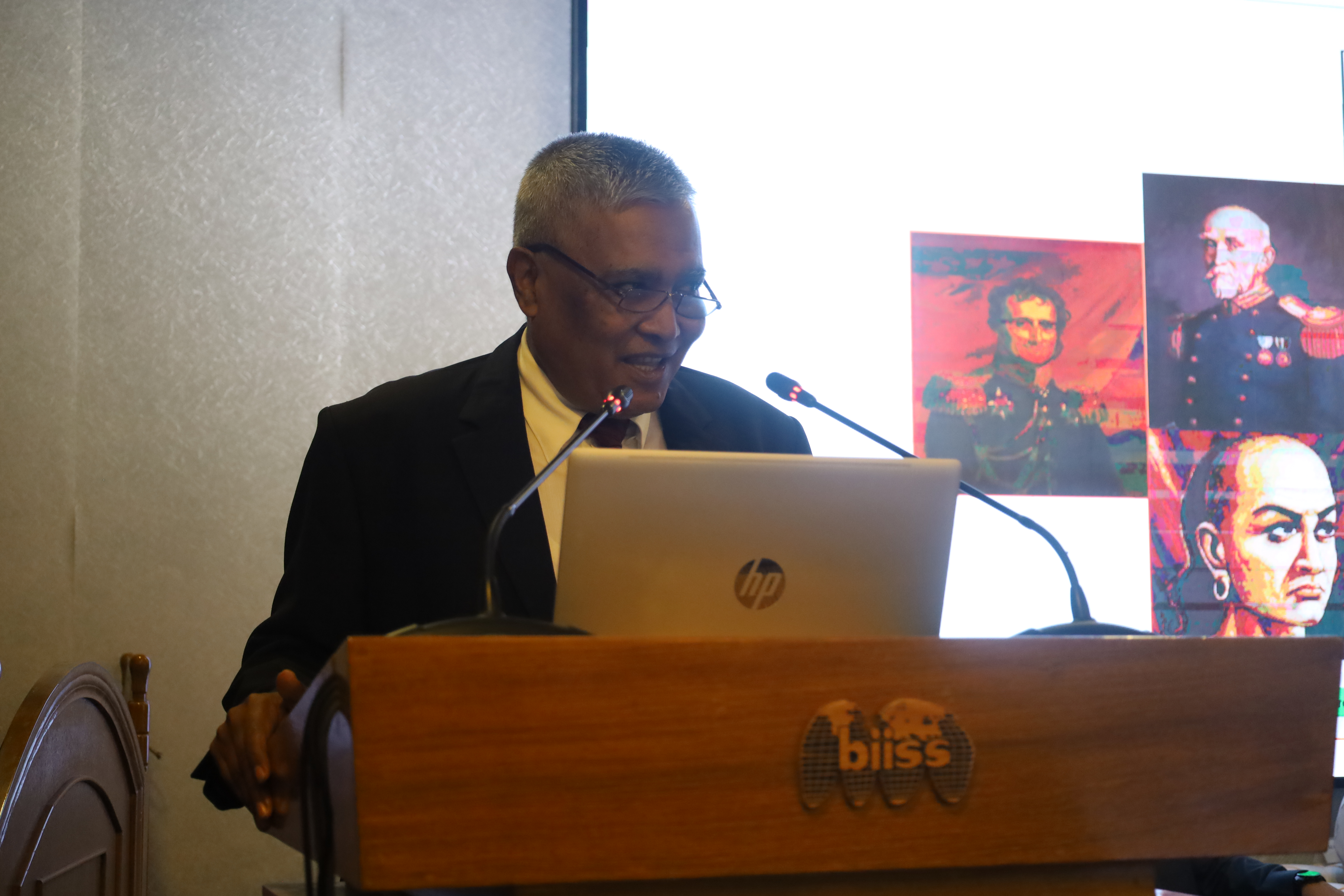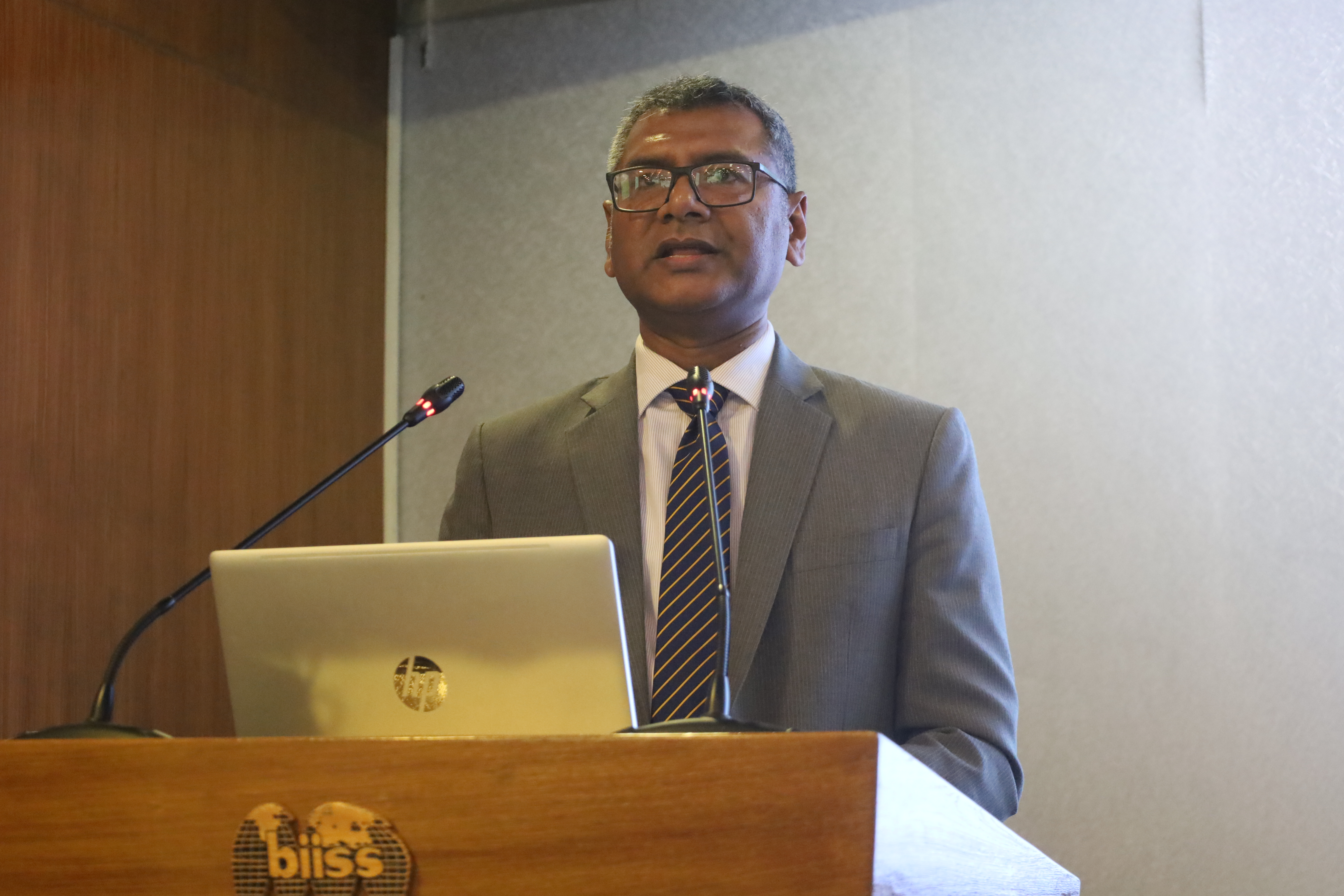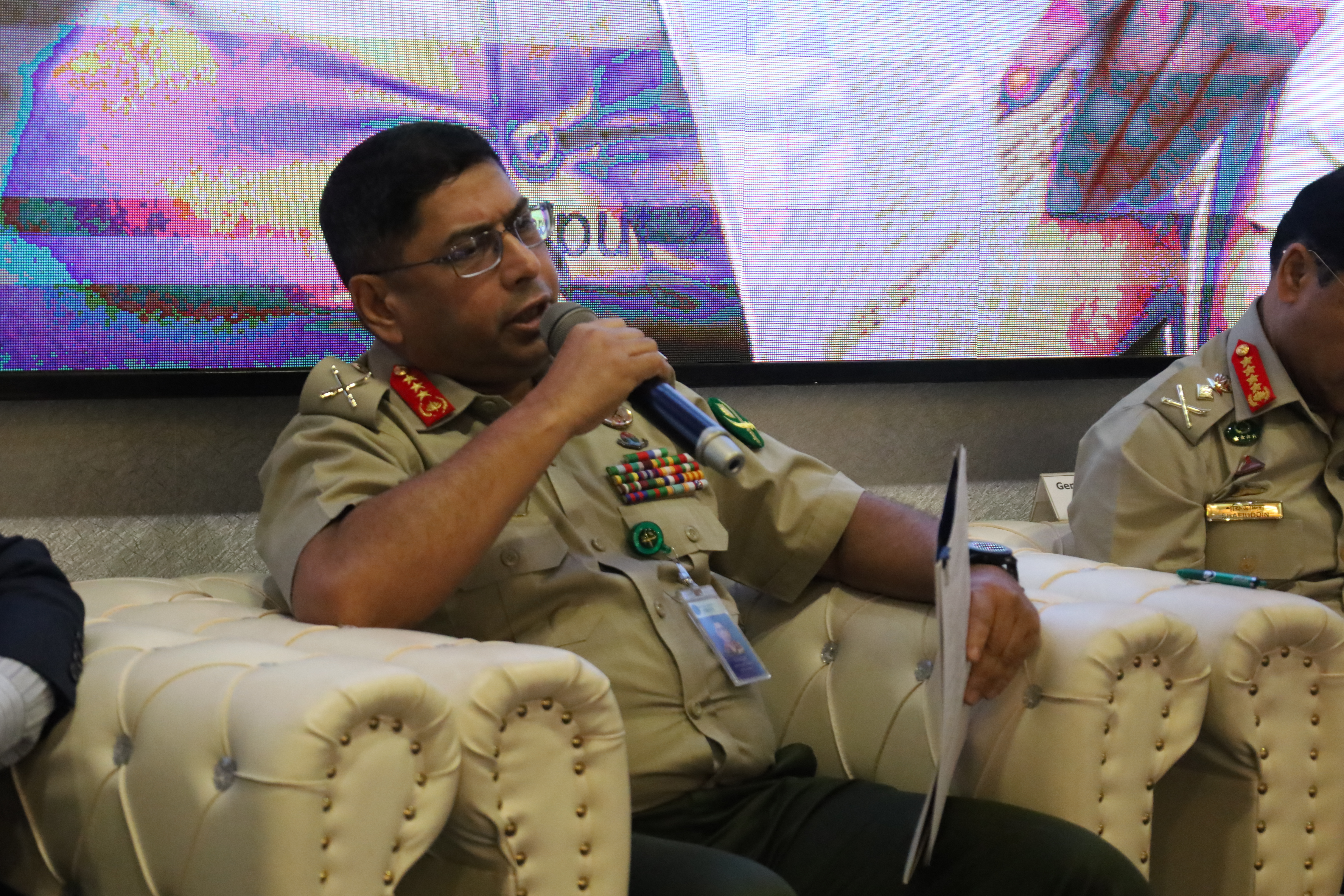Seminar on Defence Diplomacy: Strategy for Bangladesh
DATE: 2024-04-18
Bangladesh Institute of International and Strategic Studies (BIISS) organised a seminar on “Defence Diplomacy: Strategy for Bangladesh” on Thursday, 18 April 2024 at the BIISS auditorium. General S M Shafiuddin Ahmed, SBP (BAR), OSP, ndu, psc, PhD, Chief of Army Staff, Bangladesh Army, graced the occasion as the Chief Guest. Ambassador AFM Gousal Azam Sarker, Chairman, BIISS, Chaired the session and Major General Md Abu Bakar Siddique Khan, ndc afwc, psc, G+, Director General of BIISS delivered the welcome address. Lieutenant General Waker-Uz-Zaman, OSP, SGP, psc, Chief of General Staff, Bangladesh Army was also present in the seminar.
Four presentations were made in the Seminar. Dr ASM Ali Ashraf, Professor, Department of International Relations, University of Dhaka, spoke on “Evolving Notion of Defence Diplomacy and its Role in Achieving Foreign Policy Goals”; ASM Tarek Hassan Semul, Research Fellow, BIISS, talked about “Growing Geopolitical Competition: Challenges and Opportunities of Defence Diplomacy for Bangladesh”; Major General (Retd) Main Ullah Chowdhury, SUP, OSP, awc, psc, Former Deputy Force Commander, United Nations Mission in South Sudan (UNMISS) and A/FC, United Nations Mission for the Referendum in Western Sahara (MINURSO), discussed on “Defence Diplomacy in United Nations and Other Overseas Missions: Horizon to Explore” and Air Vice Marshall (Retd) Mahmud Hussain, BBP, OSP, ndc, psc, acsc, GD (P), Distinguished Expert Bangabandhu Sheikh Mujibur Rahman Aviation and Aerospace University (BSMRAAU), And former Ambassador, Brunei, made a presentation on “Existing Practices of Defence Diplomacy and Future Directions: The Case of Bangladesh”. There was an Open Discussion Session followed by the presentations.
Distinguished Speakers and discussants noted that defence diplomacy has emerged as an effective diplomatic instrument and mechanism for crisis prevention to further a country’s diplomatic ties vis-à-vis promoting its foreign and security policy objectives. From Bangladesh’s perspective, defence diplomacy is regarded as an important mechanism for using armed forces in a non-coercive manner that helps to attain the country’s national interests and foreign policy goals. They also said that participation in the United Nations (UN) Peacekeeping missions—a form of defence diplomacy—is an avenue for Bangladesh to demonstrate its commitment towards global peace and stability as well as enhance its importance and influence worldwide. Esteemed speakers mentioned that the concept and appeal of defence diplomacy are evolving in the diplomatic arena of Bangladesh.
Senior officials from different ministries, ambassadors, high commissioners, former diplomats, senior civil and military officials, media, academia, researchers, faculties and students from various universities, and representatives from international organisations participated in the seminar and enriched it by presenting their valuable questions, opinions, comments, suggestions, and observations during the open discussion session.

